Graham Reid | | 11 min read
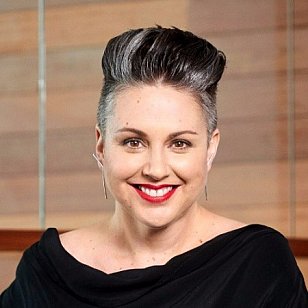
No matter what you say about Victoria Kelly she is always bigger and more important than words can convey. She is a composer, producer and singer certainly, but that hardly scratches the surface. Let's just note she has worked with – arranged and sung for – Neil Finn, Tami Neilson, Anika Moa, Don McGlashan, Sola Rosa and Shapeshifter.
Then there is her classical work: her compositions have been played by the NZTrio, NZSO, Auckland Philharmonia, Michael Houstoun . . .
Oh, and let's not forget her film work for Sir Peter Jackson and others.
She has been a musical director; worked at APRA AMCOS for many years; sang with the Strawpeople, Estere and Horomona Horo; has won two New Zealand Screen Awards and the inaugural APRA award for Best Music in a Feature Film . . .
She studied classical composition and film composition (in California) and is the world's biggest Prince fan.
She's also a lot of fun but her major project is a serious one, her Requiem to be performed at the Auckland Arts Festival in 2023.
She's released a single from it (in English and te reo Maori) but admits it is unlikely to climb the charts.
But if everyone who has heard her, worked with or has been helped by Victoria then you never know.
We asked some serious and some silly questions and she responded in kind . . .
.
A Requiem? Crikey, that's a bit serious from someone who loves Prince and whom we know from arrangements for Neil Finn and Tami Neilson?
My dear sir, are you suggesting that Prince, Neil and Tami aren’t serious?
What did a Requiem mean to you when you were younger: was this extraordinary sub-genre in classical music something which affected you as a teenager or young adult? Or something you came to later?
My mother surrounded me with classical music from the moment I was born (and probably before that). She wasn’t a musician herself but she was an avid and passionate listener. I was never forced to learn, but as soon as I showed an interest I was fortunate enough to be encouraged and enabled by someone who knew the profound value of music.
The spectrum of music is vast and I’ve always been a magpie... obsessively drawn to whatever interesting thing catches my ear... and then to the next thing... and then to the next. Bach, Mozart, Stravinsky, Ellington, Herrmann, Prince, Joni Mitchell, Stevie Wonder, Aphex Twin, Mahinarangi Tocker, Neil Finn, Tami Neilson, SJD... (how lucky am I to have worked with four of those people?)
While there are many specific Requiems that I love (Mozart, Faure, and a lot of other music that approaches the subject of death but doesn’t necessarily take the form of a Requiem), the inspiration for mine has more to do with my own experiences of loss and grief, and my attempt to somehow articulate them.
Having said that, Wendy Carlos’ use of the Dies Irae chant from the Latin Requiem Mass in the opening credits of ‘The Shining’ is awe-inspiring and unparalleled.
There's usually a bit of Latin in your actual hardcore religious requiem of course. But in yours . . . poems by Bill Manhire, Sam Hunt, Ian Wedde, Chloe Honum and James K Baxter. What drew you to these particular works? Is there a common thread?
There’s Latin in my Requiem too. I’ve borrowed word fragments from the Mass to form auras around the poetry and illuminate some of the thematic ideas.
My Requiem is not religious, but neither is it anti-religious. The intent is for the Latin fragments to symbolise the many ways in which we all try to understand our place in the universe (via the only belief system I have any direct experience of).
I was drawn to the poems simply because they’re so beautiful. Each one articulates something I didn’t have words for until I read it – and I came to know each one at a different moment in my life.
 The poems form a kind of autobiographical (although not chronological) thread.
The poems form a kind of autobiographical (although not chronological) thread.
In the context of the Requiem, the Manhire represents wonder, the Hunt represents death, the Wedde represents longing, the Honum represents loss, the Baxter represents surrender and the Latin Mass represents comfort.
I like what you've said about wonder, loss and longing in the poems. But what about surrender? As Australian MP Pauline Hanson famously said when she didn't understand a question: “Please explain”.
The last line in Baxter’s poem – High Country Weather – reads “surrender to the sky your heart of anger”.
This is the last poem - and the last line - in the Requiem.
At the very end, the soprano repeats the word “surrender” over and over again. The orchestra and the choir gather her in ... and then they all disappear.
My mother was sick for three years before she died. She was valiant and inspiring in her illness, but at the end it was hard for her to let go of life. Witnessing the inevitable force of a moment so immeasurably large (in the context of us) and so incredibly small (in the context of the universe) was an experience that I will never be able to find words for, but JK Baxter somehow managed to find the words in High Country Weather.
This is classical music but you're releasing a single [available on pre-order here]: one version in English by Simon O'Neill and the other in te reo Maori by Anika Moa. A deliberate ploy to get to the kids and on the charts or . . .
I have a sneaking suspicion that – in a world where 100,000 songs are released on Spotify every day and 400 hours of content are uploaded to YouTube every minute – the kids are probably not going to rock out to my 6 minute, 40 bpm single about death. But I’m recording the Requiem as an album (thanks to Creative New Zealand and all of the beautiful musicians and people who have been so generous with their time and talent) so... why not release a single (and a lyric video)?
The full Requiem is going to be performed live in March next year at the Auckland Arts Festival. I know that contemporary classical music can be intimidating for audiences, so perhaps a single that’s released in advance can offer a way into the language and intention of the piece, and make the prospect of sitting through an unfamiliar 40 minute contemporary work slightly less daunting for people. That’s my hope anyway.
And my other hope is that this plan doesn’t backfire!
 I’ve chosen the second of the five poems that make up the Requiem – Sam Hunt’s poem (also called ‘Requiem’) - to be the single. Sam recited it for me in person once, years ago, and that memory still brings tears to my eyes.
I’ve chosen the second of the five poems that make up the Requiem – Sam Hunt’s poem (also called ‘Requiem’) - to be the single. Sam recited it for me in person once, years ago, and that memory still brings tears to my eyes.
Simon O’Neill gives an incredibly soulful rendering of the poem that surpasses anything I could have imagined when I was writing it. And it’s only in Aotearoa where a lowly composer like me has access to a superstar like him and can somehow convince him to step as far out of his comfort zone as it’s possible to go and sing in an utterly untrained register in order to evoke the fragility of the human condition.
The Māori interpretation of this poem - He Taurere - was translated into te reo with Sam’s blessing by Sir Tīmoti Kāretu and supported by Pokapū - an APRA / CNZ partnership created by Dame Hinewehi Mohi to facilitate the translation of English songs into te reo Māori.
Dame Hinewehi and Stacey Morrison worked with Anika and me to shape the flow of the music to fit the reo, and the flow of the reo to fit the music... and Anika’s interpretation is transcendent.
When I sent Sam her version in te reo, he wrote back and said “It lifted me to the sky. (I'm still up there - somewhere.)”
‘Requiem’ and ‘He Taurere’ feel almost like different pieces – each sitting in their own dimension, each calling to their own loved ones – with Simon and Anika’s beautiful and unique performances bringing the words to life.
Perhaps a remix would get the kids on the dancefloor?
Okay seriously. This is an ambitious undertaking. It was supposed to have had its premier this past year. However what with Covid and all . . . it will now be in next year's AK arts festival. The poems are beautiful in themselves and the idea of a Requiem is something no one would undertake lightly in the 21st century. Has the idea been with you for a while, or did something, some incident in particular, prompt you to consider death, life and the whole damn thing?
You’re quite right - this has certainly not been a light, or a brief, undertaking.
I lost a dear friend in a car accident when I was 16 and my father died suddenly when I was 20. I knew back then that I wanted to one day write music that articulated the ways in which those things affected me (but I’m glad we have all been spared the horrors of my adolescent musings on the River Styx, written in the style of Carl Orff).
When I was 27, my mother became ill. She died when I was 30. That was when the Requiem became clear in my mind. I knew it would not be religious, that it would be based on New Zealand poetry, and what four of those poems would be.
I wrote to Bill Manhire, Sam Hunt, Ian Wedde and J K Baxter’s family (Chloe Honum, pictured, had not yet written her poem) and got permission to set their works to music. I even tried to buy Bill Manhire a coffee, but my EFTPOS card was declined. That was almost 20 years ago. The lovely poets have patiently tolerated my sporadic (yet intense) bulletins ever since.
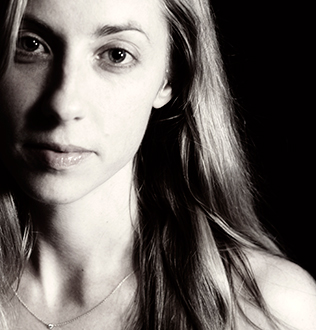 The intervening years have brought marriage, babies, new layers to old grief, world events, mental hurdles, beloved friends who’ve experienced losses of their own, the visual inspiration of Anne Noble’s work which has found its way into the music, and more thoughts about what my Requiem might try to say in light of all those things.
The intervening years have brought marriage, babies, new layers to old grief, world events, mental hurdles, beloved friends who’ve experienced losses of their own, the visual inspiration of Anne Noble’s work which has found its way into the music, and more thoughts about what my Requiem might try to say in light of all those things.
During the lockdown of 2020, I realised that life never brings a magical moment of pause in which you can miraculously find the time and inspiration to realise your ideas ... you have to try and cobble together your muddled vision amidst the howling maelstrom of everything else – whether that’s a family or a pandemic or a financial reality, or all of those things at once.
I found myself paralysed during the lockdowns - like so many other creative people I know – but I did realise how much I still wanted to write the Requiem, and that time had also been quietly writing it on my behalf. So I decided to try and bring it to fruition.
I made some demos and on the basis of those, Shona McCullagh programmed it for the Auckland Festival. I can’t tell you how much heart she gave me with her enthusiasm.
Then Covid. In the scheme of the Covid cataclysm, having a Requiem cancelled was a minor inconvenience compared to the misery that was unleashed upon the world, so I decided to view those extra few months as a blessing and use them to reassess some of my musical decisions (because I hadn’t had quite enough time to make good decisions previously - lolz).
Finally now, after nearly 30 years, the Requiem is (almost) finished.
You are a scholar and a composer, so did you analyse Britten's War Requiem, the big Catholic stuff, Penderecki, Mozart and all those guys?
At one point during the lockdown, shortly after Auckland Festival had indicated that they would present the Requiem, I watched a live performance of Petrouchka on TV – an ebullient, virtuosic performance of a hands-down masterpiece, composed by Stravinsky when he was still (obscenely) in his 20’s. That was a terrible mistake. I couldn’t write another note for months after that. Instead I played Minecraft and hated myself.
So, no! I did not study Mozart or Britten or any of those other smug composers who had actually finished their brilliant, archetypal Requiems. Nothing is more intimidating than approaching your own clumsy, meagre work with the spectre of historic genius ringing in your ears.
In the past though, I have absolutely studied and loved all of the music you’ve mentioned. And no doubt the fabric of my Requiem is woven from the threads I’ve pulled from the hems of those (and many other) great composers.
Did you feel it was long overdue that a 21st century woman in this particular place should and could have something to say in this idiom?
I certainly feel lucky to be a 21st century woman in this particular place, with the personal and financial freedom to write a 40 minute secular Requiem and have it performed by extraordinary musicians, with the added benefit of not going hungry, negotiating a war, or fearing for my life.
I’m also mindful that we have an abundance of incredible female, non-binary and trans creators in Aotearoa New Zealand – alongside wonderful male talent of course - and how important it is to acknowledge that the reason we know the names of so many of our talented musical minorities is not because they’ve had an equal opportunity to succeed, but because they’ve transcended the barriers to their success. And how important it is to also remember that there are many more talented people who have not yet been able to transcend those barriers.
So... I hope that each new work (including my own) that’s commissioned, created, recorded or performed here is able to open more doors for more people, and contribute to a more equitable and sustainable musical future for everyone.
Last one. I know soundtracks and sound design for movies are things well within your orbit. Given the breadth of sound and the scale of that genre, did any of that inform the musical decisions you made for how your Requiem would sound to an audience as familiar with Bladerunner 2049 as perhaps Mozart's Requiem?
First things first. You’re talking to a Bladerunner purist, so forget 2049. It’s the 1982 OST by Vangelis all the way!
Secondly, I’m very frightened of writing a Requiem that sounds like film music. Not because I don’t love film music... but because film music is a different artform.
As a film composer, you are constantly looking to another source to shape your work. You’re looking to the film, to the director, to the rhythm of the edit, to the performances of the actors, to the tone of the atmospheric sound, to the narrative, to the audience experience, as well as to yourself when you write.
As a composer of music that’s intended to stand alone, you’re looking to the abyss for feedback. And if what emerges from the abyss is a voice that belongs to anyone except you... then you need to cover your ears until the abyss stops talking.
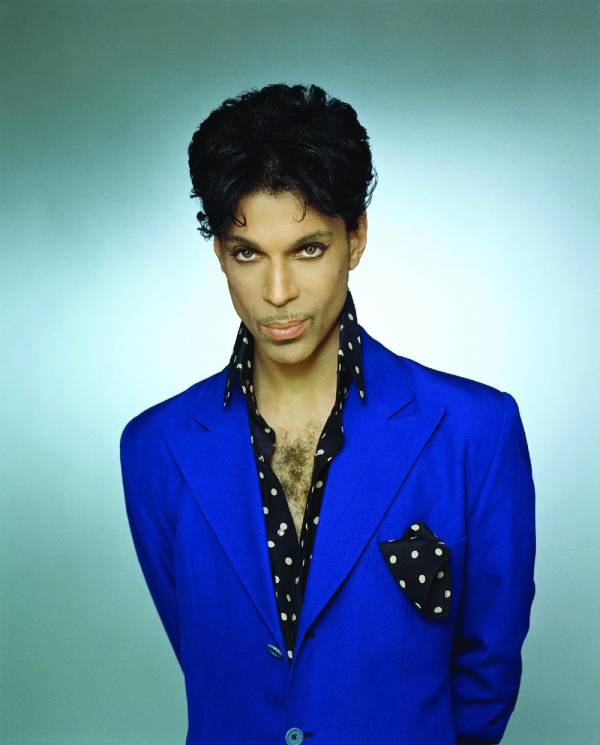 I’ve tried very hard to make musical decisions in this Requiem that are completely truthful and entirely my own. I can’t know what those decisions will sound like to others. I can only hope I’ve managed to say what I mean and that my intention will resonate with other people by happy coincidence.
I’ve tried very hard to make musical decisions in this Requiem that are completely truthful and entirely my own. I can’t know what those decisions will sound like to others. I can only hope I’ve managed to say what I mean and that my intention will resonate with other people by happy coincidence.
Anything else you want to say, about anything to do with this project. Or even why Prince was the greatest ever musician, like just the GOAT?
I was 8 years old when I first heard Prince. I remember the moment vividly. The opening chords of Little Red Corvette – harmonic clusters, the Oberheim OB8 synth sound, the white noise percussion, and then his breathy voice singing “I guess I should have known by the way you parked your car sideways that it wouldn’t last”...
That moment changed my tiny life forever.
There’s a secret Prince quote in my Requiem (but... here’s a clue... it’s not in the single).
If someone spots it, I’ll buy them a drink.
.
For booking details and more on Victoria Kelly's Requiem see here.
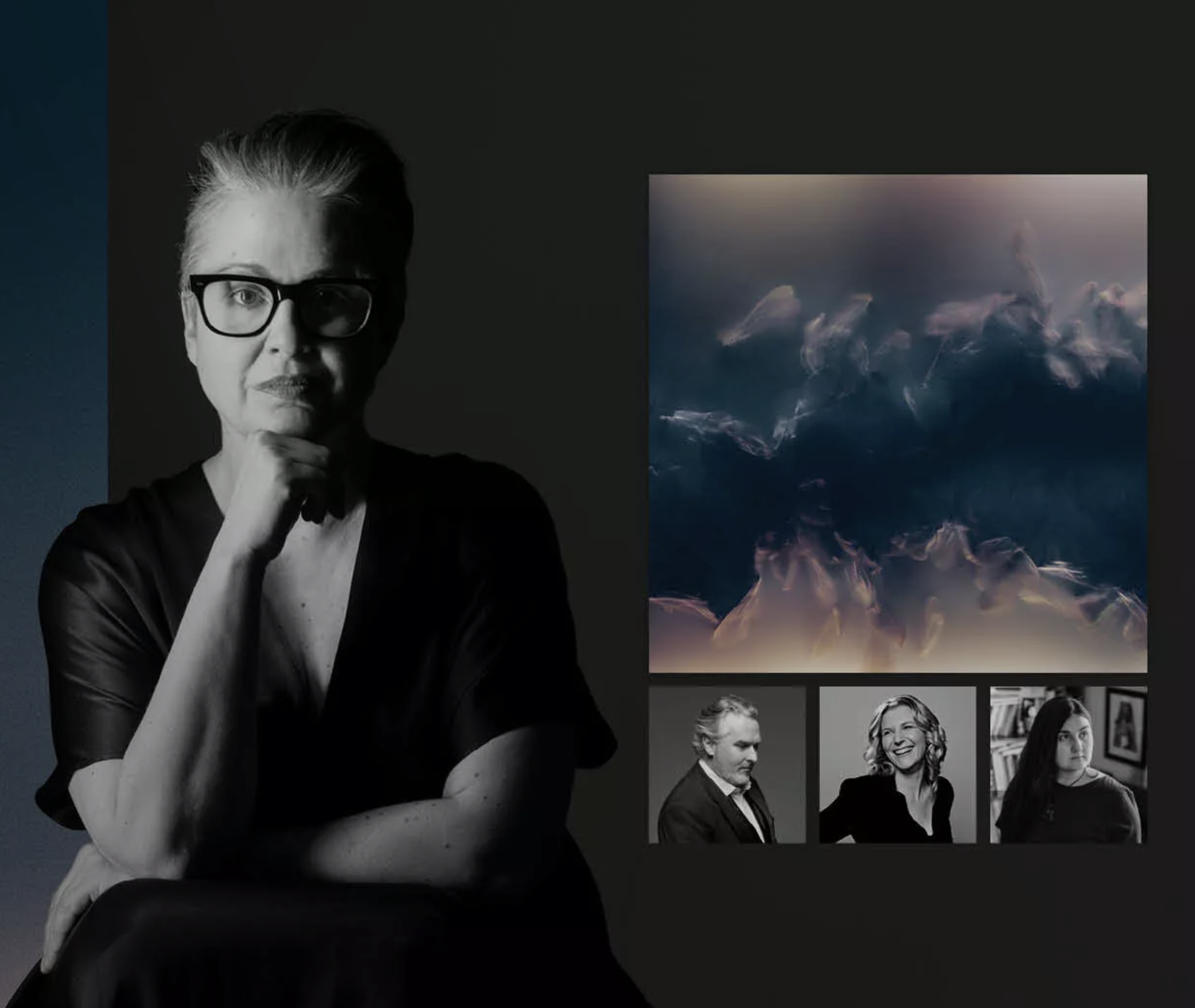
.
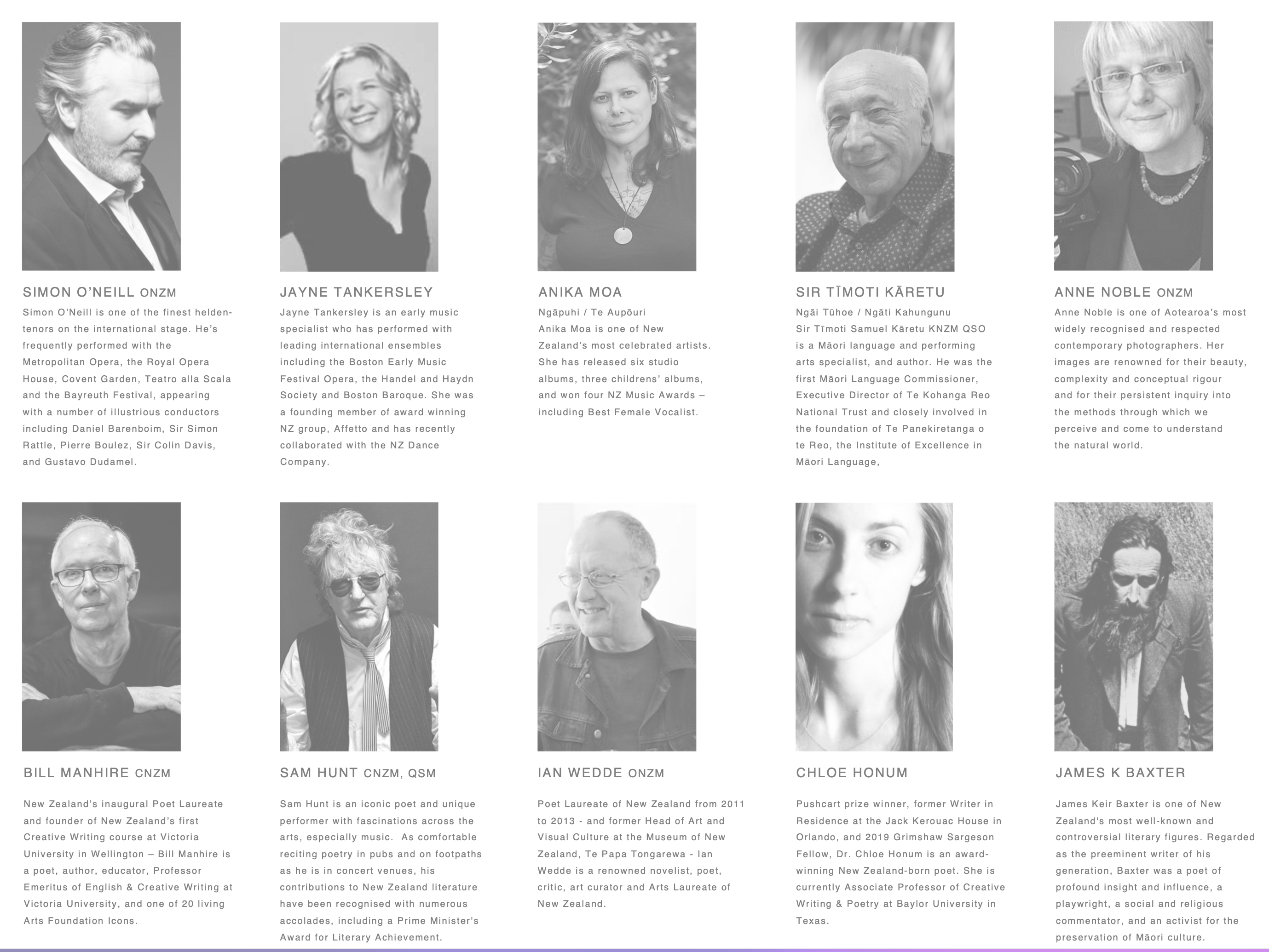
.


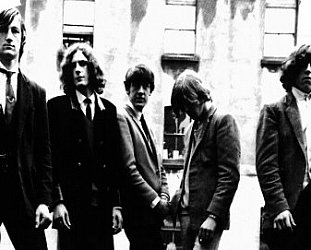
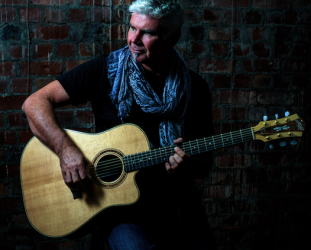
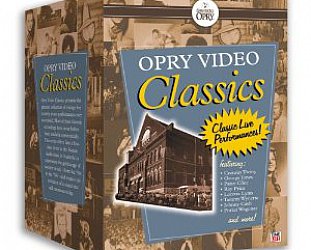
post a comment